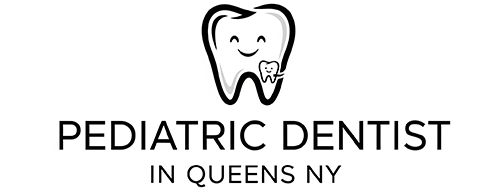Proper oral hygiene is essential for maintaining good overall health and well-being, yet many children struggle to develop and maintain healthy habits.
According to the American Dental Association, tooth decay is the most common chronic disease among children, affecting more than 40% of children ages 2-11 and more than 80% of adolescents ages 12-19.
It is important for parents and caregivers to actively encourage good oral hygiene habits in children to prevent tooth decay and promote overall health.
1. Start early
It is never too early to start teaching children about the importance of oral hygiene. Parents can clean their gums with a damp cloth or a small, soft toothbrush even before a child’s first tooth appears.
This helps to get children used to the routine of having their mouths cleaned and establishes a foundation for good oral hygiene habits.
2. Make it fun
Many children may view brushing and flossing as chores, so it is important to make the experience as enjoyable as possible. Using fun toothbrushes and toothpaste with fun flavors can make brushing more appealing.
Parents can also make brushing and flossing a game or a challenge for children to make it more engaging.
3. Set a good example
Children often model their behavior after that of their parents and caregivers, so adults need to set a good example by maintaining their own oral hygiene habits.
Parents can brush and floss alongside their children to show them how it is done and make it a family activity.
4. Limit sugary snacks and drinks
Sugar is one of the main contributors to tooth decay, so it is important to limit a child’s intake of sugary snacks and drinks.
Instead, encourage children to eat a healthy diet with plenty of fruits and vegetables and to drink water instead of sugary drinks. This will not only promote good oral hygiene but also good overall health.
5. Regular dental check-ups
Regular dental check-ups are an important part of maintaining good oral health. They allow dentists to catch any potential issues early on and provide necessary treatments or advice on improving oral hygiene habits.
Parents should schedule regular dental check-ups for their children and attend appointments with them to help establish the importance of oral hygiene.
Also read The Management of Dental Anxiety and Behavior Management in Children
Conclusion
Encouraging good oral hygiene habits in children is essential for preventing tooth decay and promoting overall health. By starting early, making oral hygiene fun, setting a good example, limiting sugary snacks and drinks, and scheduling regular dental check-ups, parents and caregivers can help children develop and maintain healthy oral hygiene habits.
It is important to remember that oral hygiene habits formed in childhood can have a lasting impact on a person’s overall health and well-being. By taking the time to encourage good oral hygiene in children actively, parents and caregivers can set children on the path toward a lifetime of healthy teeth and gums.
Take action today to ensure your children have healthy teeth and gums. Schedule regular dental check-ups, encourage a healthy diet and good oral hygiene habits, and set a good example.
5 Frequently Asked Questions
- Q: At what age should I start brushing my child’s teeth?
A: Parents can start cleaning their child’s gums with a damp cloth or a small, soft toothbrush even before a child’s first tooth appears. Once the first tooth appears, parents should start brushing the tooth with a small amount of toothpaste. It is recommended to supervise brushing until children are around 7 years old. - Q: How often should my child brush their teeth?
A: Children should brush their teeth at least twice daily, once in the morning and once before bedtime. It is also important to floss daily to remove plaque and food particles between teeth. - Q: How much toothpaste should I use for my child’s brush?
A: For children under the age of 3, a pea-sized amount of toothpaste is recommended. For children between the ages of 3 and 6, a pea-sized amount of toothpaste with fluoride is recommended. Children over 6 years old can use the same amount of toothpaste as adults. - Q: What are some healthy snacks that are good for my child’s teeth?
A: Fruits and vegetables are great snacks for children’s teeth as they are low in sugar, vitamins, and minerals. Cheese, nuts, and yogurt are also healthy options. It’s important to limit sugary and sticky snacks such as candy and cookies. - Q: How often should my child see a dentist?
A: The American Dental Association recommends that children see a dentist at least once every six months. Regular dental check-ups allow dentists to catch potential issues early on and provide necessary treatments or advice on improving oral hygiene habits.
As parents, caregivers, and educators, it’s essential to take an active role in encouraging good oral hygiene habits in children.
By starting early, making oral hygiene fun, setting a good example, limiting sugary snacks and drinks, and scheduling regular dental check-ups, parents and caregivers can help children develop and maintain healthy oral hygiene habits that will last a lifetime.

Mary – Queens Pediatric Dental Resource Manager. I’m a dental health researcher and parent advocate based in Queens, NY. After struggling to find reliable pediatric dental information during my own child’s dental emergency, I created this resource to help other Queens families navigate their children’s oral health needs.
I curate evidence-based information from leading pediatric dental organizations, peer-reviewed research, and trusted dental health experts. While I’m not a dentist, I’m committed to providing accurate, practical guidance that helps parents make informed decisions.
All content is thoroughly researched and includes proper medical disclaimers directing families to consult qualified pediatric dentists for their children’s specific needs.
